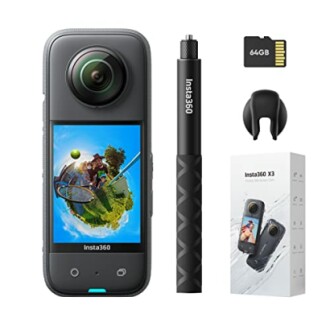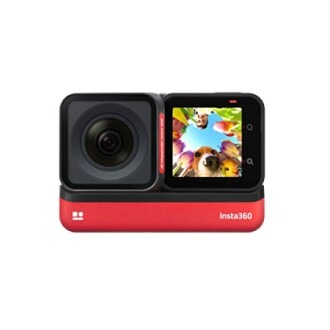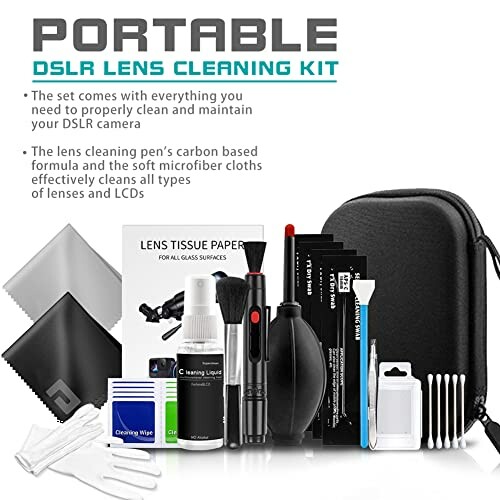
The rise of 360-degree cameras and their uses
Key Takeaways
- 360-degree cameras are gaining traction in various fields, including real estate and tourism.
- These cameras are revolutionizing visual storytelling with immersive experiences.
- Technological advancements have made 360-degree cameras more accessible and user-friendly.
In recent years, 360-degree cameras have taken the world by storm. This technology, once considered a novelty, is now being harnessed across various industries, including real estate, tourism, and even entertainment. Their ability to capture immersive imagery is transforming how stories are told and experiences are shared.
What are 360-degree cameras?
360-degree cameras are equipped with multiple lenses that allow them to capture panoramic photos and videos. Unlike traditional cameras that only capture a single frame, 360-degree cameras create a spherical view, offering users an immersive experience. This technology has prompted a wave of innovative uses in various sectors.
Thriving sectors adopting 360-degree cameras
Let's take a closer look at some sectors where 360-degree cameras are making significant impacts.
1. Real Estate
Real estate agents are increasingly using 360-degree cameras to provide virtual tours of properties. This gives potential buyers an opportunity to explore homes from the comfort of their own space. The immersive experience can lead to higher engagement and interest in listings.
2. Tourism
Tourism companies use 360-degree cameras to showcase destinations, allowing potential travelers to virtually experience attractions before visiting. Marketing campaigns that feature immersive content have proven to attract more visitors, enhancing the overall travel experience.
3. Education
Educational institutions are starting to incorporate 360-degree cameras into their curriculum to create interactive learning environments. Students can explore historical sites or conduct virtual science experiments, all through the lens of a 360-degree camera.
Current popular 360-degree camera models
Here are some of the best 360-degree cameras currently available that cater to different needs:
Insta360 X3 Get-Set Kit
A waterproof 360 action camera featuring 5.7K 360 Active HDR video and a 2.29” touchscreen for seamless control.
Learn MoreInsta360 ONE RS 4K Edition
A rugged 4K action camera equipped with FlowState stabilization and a new 48MP image sensor for stunning visuals.
Learn MoreComparing 360-degree cameras
| Camera Model | Video Resolution | Photo Resolution | Stabilization | Battery Life |
|---|---|---|---|---|
| Insta360 X3 | 5.7K | 72MP | FlowState Stabilization | Up to 60 minutes |
| Insta360 ONE RS | 4K | 48MP | FlowState Stabilization | Up to 70 minutes |
The future of 360-degree cameras
As technology continues to advance, we can expect even more improvements in 360-degree cameras. Features such as higher resolutions, better stabilization, and AI enhancements for editing are becoming more prevalent. This trend indicates that more industries will adopt this technology, leading to innovative ways of telling stories and sharing experiences.
Pros
- Immersive experiences that enhance viewer engagement.
- Versatile use across various industries.
- Modern cameras are increasingly user-friendly.
Cons
- Higher initial cost compared to traditional cameras.
- Editing 360-degree content can require specific skills.
- Not all platforms support 360-degree video.
Camera maintenance tips
Proper maintenance of your 360-degree camera is essential to ensure longevity and optimal performance. Here are some effective tips:
- Regularly clean the lenses with a suitable cleaning kit to avoid dust and smudges.
- Store your camera in a protective case to prevent damage while traveling.
- Keep the firmware updated to enhance features and performance.
Professional Camera Cleaning Kit
Everything you need to keep your camera clean, including solutions, swabs, and air blowers for optimal maintenance.
Learn MoreConclusion
360-degree cameras are changing the way we capture and share our stories. With their ability to provide immersive experiences, they are becoming indispensable tools in industries from real estate to education. As technology continues to drive innovation, the potential uses for these cameras will expand, making it an exciting time for enthusiasts and professionals alike.
For more information on cameras, be sure to check out our Camera Resources or learn more about Camera Accessories to augment your photography skills.


